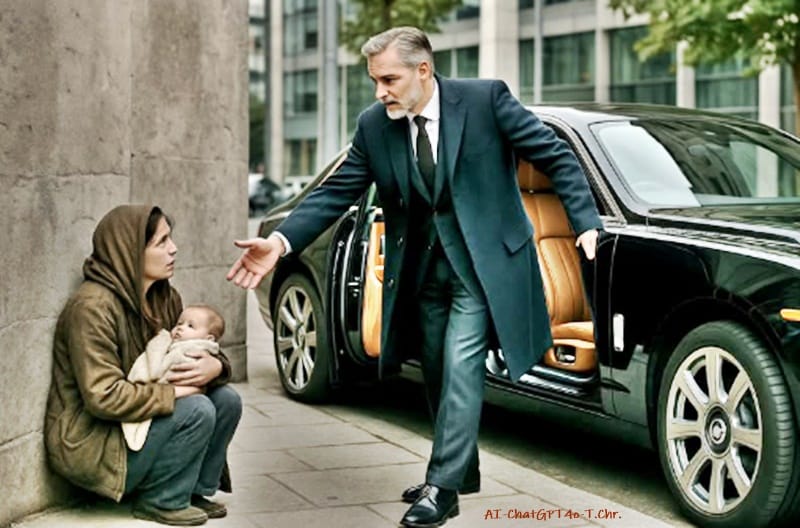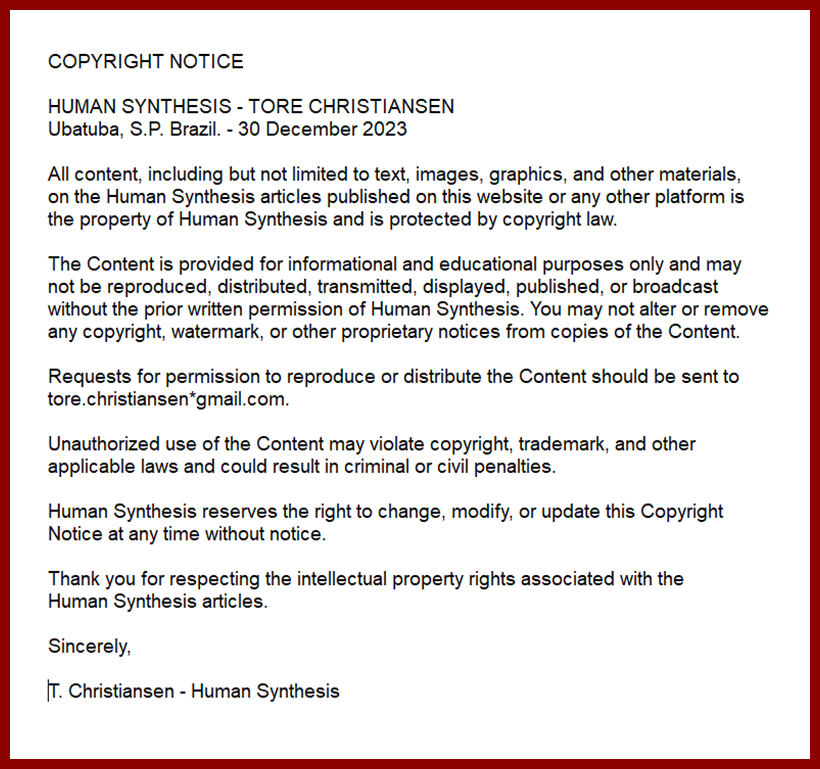THE KEY TO SOMETHING GREATER

By AI-ChatGPT-T.Chr.-Human Synthesis. 06 June 2025
The rain had come without warning — thick, slanted sheets hammering the pavement, turning the streets into dark rivers. Nathan Hale's black town car sliced through the storm like a blade.Inside, the world was quiet: leather seats, jazz humming from hidden speakers, and Nathan himself adjusting his cufflinks like always — as if time didn’t dare touch him. He wasn’t late for the airport.
Nathan was never late. His flight to Zurich was scheduled for 4:10 p.m., and it was only 2:36. The driver knew better than to make conversation.Then something flickered in the corner of Nathan’s eye — movement near the edge of a lamppost. He almost didn’t look. But he did.A woman. Soaked through. Hair matted to her cheeks. A plastic grocery bag clutched to her chest — no, not a bag.
A bundle. A baby. Her bare feet stood in a widening puddle, as if she’d forgotten the world had rules. Her eyes met Nathan’s car window for only a second, but it was enough.
"Stop the car," Nathan said.The driver hesitated. "Sir?"Nathan unbuckled his seatbelt. "I said stop."The brakes hissed. Water splashed.Nathan stepped into the storm — three-thousand-dollar shoes drowning instantly. He didn’t care. Not in that moment."You need somewhere to go," he said.She didn’t answer. Just tightened her grip on the child and shook from the cold.
He pulled a silver key from his coat pocket."This is my house," Nathan said quietly, almost to himself. "It’s empty. Take it. There’s food. Blankets. Heat."She stared at him as if he were insane. Maybe he was. Maybe, for once, he wanted to be.He pressed the key into her hand, stepped back, and returned to the car without another word.
The door slammed. The car slid back into the storm. The woman was gone from his view. Like a ripple in the water — brief, but unforgettable.Two weeks later, Nathan stood in front of his mansion again — duffel bag in hand, jet-lagged, and unsettled.Something was off.The windows were lit. The garden looked trimmed. And there was music playing softly — an old lullaby, coming from the baby grand piano in the salon.
He turned the key in the lock and stepped inside. Then froze.The house was alive.The woman stood by the fireplace, gently swaying. The baby was sleeping, wrapped in one of his cashmere throws. The air smelled like rosemary and warmth. Soft light spilled from the sconces, and a pot of stew simmered on the stove.She looked up, calm and sure."I thought you might come back. I’m Maya. This is Elias."Nathan blinked. His voice caught in his throat. "I didn’t think you would stay.""I didn’t think anyone would give me a key."What followed wasn’t dramatic. He didn’t ask her to leave.
She didn’t apologize. They simply lived. Days became weeks. He found her tending to the rosebushes in the back garden — roses that had refused to bloom since his wife died. He found Elias gurgling in the mornings, chasing sunbeams with his fingers. He found himself sitting on the floor with them, laughing more than he had in years.The house had changed. Or maybe it had come alive because Nathan had changed.—Philosophical ReflectionAt its core, this story is a meditation on grace, human connection, and the transformative power of radical empathy.
Nathan’s decision to give his house key to a stranger with a baby is spontaneous and irrational by worldly standards. Yet, it reveals the essence of true generosity: an act that expects nothing in return.Philosopher Emmanuel Levinas suggests that the face of “the Other” calls us to a moral responsibility deeper than social convention. Nathan experiences this when he locks eyes with Maya. In a world often ruled by transactions and merit, his key becomes a gesture of unconditional humanity.
The mansion, once a monument to wealth and isolation, becomes a living symbol of moral renewal. As Heidegger wrote, to dwell is not just to reside, but to meaningfully inhabit the world. Maya and Elias reawaken the house as a home. Their presence turns space into sanctuary, just as their quiet resilience reawakens Nathan’s dormant compassion.Elias, the baby, symbolizes possibility — the unformed future. In many philosophies, the child represents purity and the freedom to remake meaning.
Sitting on the floor beside Elias, Nathan sheds hierarchy and enters the sacred ordinary. He reclaims the essence of being: not dominance, but relationship.This is not a tale of charity. It is a parable of awakening. Nathan is not a savior. He is the one being saved — from numbness, from solitude, from forgetting what it means to see and to feel. Through one small act, a mansion becomes a home, a stranger becomes family, and a man becomes more fully human.In the end, the real key Nathan gave away wasn’t made of silver.
It was made of grace..
